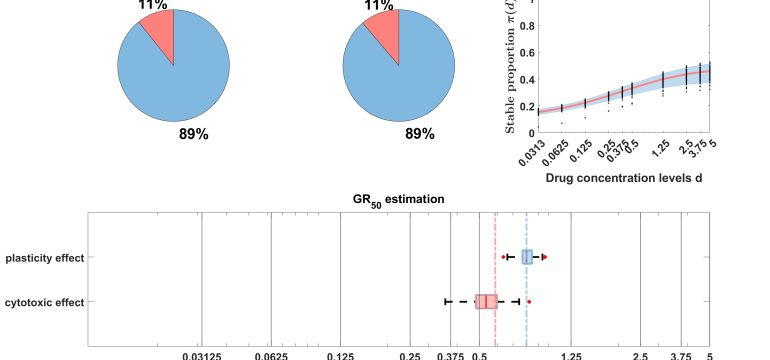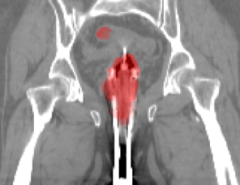Authors: Chenyu Wu, Einar Bjarki Gunnarsson, Jasmine Foo, Kevin Leder
Published on: September 27, 2024
Impact Score: 7.4
Arxiv code: Arxiv:2409.18879
Summary
- What is new: This study introduces a robust statistical framework based on multi-type branching processes to analyze tumor dynamics and the effects of drugs using high throughput drug screening data.
- Why this is important: Resistance to therapy in cancer treatment is a major challenge largely due to the presence of a stem-like cell population that drives tumor recurrence after treatment. Additionally, many anticancer drugs unintentionally induce plasticity, making cancer cells revert to a drug-resistant stem-like state.
- What the research proposes: The proposed solution is a statistical framework that dissects tumor dynamics and drug effects, estimating parameters that govern population dynamics and drug responses, specifically focusing on drug-induced cell plasticity.
- Results: The framework was validated through comprehensive in silico experiments and showed efficacy in analyzing drug effects on tumor populations. Using recent in vitro data with AGS-SORE6+/- cells treated with ciclopirox olamine, it confirmed the presence of drug-induced cell plasticity.
Technical Details
Technological frameworks used: Multi-type branching processes
Models used: Statistical modeling for population dynamics and drug response
Data used: High throughput drug screening data and in vitro data involving AGS-SORE6+/- cells treated with ciclopirox olamine
Potential Impact
Pharmaceutical companies involved in anticancer drug development and biotechnology firms focusing on personalized cancer treatments could benefit from these insights.
Want to implement this idea in a business?
We have generated a startup concept here: OncoDynamics.



Leave a Reply